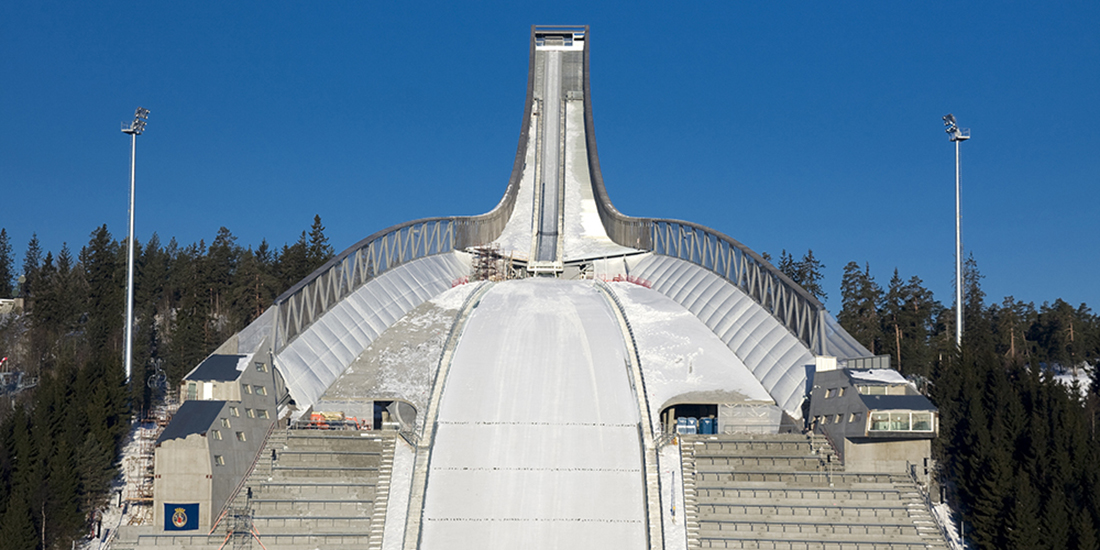How can deficits be avoided at major sporting events?
Many major sporting events experience large cost overruns and lower revenues than expected. The reasons are complex, but several misjudgements seem to recur from one event to the next. Researchers in sports economics offer a solution to avoid making the same mistakes over and over again.
The World Cycling Championships in Bergen in 2017 had budgeted slightly more than € 16.5 million in both revenues and costs. They missed the mark on both counts, and the event incurred a € 5.8 million deficit.
The expected number of visitors to the World Cycling Championships was greatly overestimated, and the vast majority of spectators came from Bergen and the surrounding area. The municipal administration expected that 5 000 motorhomes would come to the city, but the actual number turned out to be only 245.
The organizers had booked 50 000 room days in the hotels but only needed 19 000. The hotels that had held rooms for the cycling event tourists had therefore not booked any conferences for that period.
The situation would have been even worse had it not been for the fact that the Norwegian Police Security Service (PST) upgraded the danger of terrorist attacks, which made it necessary to bring in more police officers from other police districts – and to lodge them in hotels in Bergen.
As a result, maintaining security became more expensive than expected. The PST’s initial budget was € 317 000, but the final bill came to € 7.4 million.
The organizers were responsible for between € 1 million and € 1.4 million of this amount, but since they went bankrupt, the police were left holding the bag.
Lillehammer Olympics tops the list
Other major sporting events with major cost overruns include:
- 1993 World Cycling Championships in Oslo: € 1.26 million deficit
- 2014 Chess Olympiad in Tromsø: € 422 400 deficit – after receiving extra government funds of € 1.27 million
- 2014 Mountain Bike World Championships in Hafjell / Lillehammer: € 845 000 deficit
The 2011 Nordic World Ski Championships, however, finished with a solid operating profit (€ 7.29 million), but the infrastructure investments at Holmenkollen were 17 times more costly than originally budgeted. After Oslo had won their bid to host the World Ski Championships, FIS (the International Ski Federation) came with demands for major improvements to the ski arena.
This led to investment costs amounting to € 193 million.
Turning the clock back to the Olympics in Lillehammer in 1994, slightly more than € 63.4 million was originally budgeted. The final bill came to € 972.2 million.
The price tag for the Olympic facility itself was € 740.9 million, with infrastructure costs of € 211.7 million, which mainly financed the new bridge over Lake Mjøsa.
“An enthusiastic local group launched the plans for the Olympics in Lillehammer, but they weren’t taken seriously at first. So it was a big surprise when the IOC awarded Lillehammer the Winter Olympics. At that point Norway’s Ministry of Finance went in and adjusted the budgets,” says Harry Arne Solberg.
Solberg is a professor at NTNU Business School. He and NTNU Business School colleague Associate Professor Denis M. Becker have researched the reasons for budget gaps and cost overruns.
(See reference at the end of the article).

Professor Harry Arne Solberg (left) and Associate Professor Denis M. Becker at NTNU Business School.
Like sending up New Year’s fireworks
But would we want to miss out on these folk festivals? A lot of people would say no. How glorious was it to see Johan Olav Koss win three Olympic gold medals on skates at home turf, and to hear the IOC president say “Best Olympic games ever.”
“I compare it to launching New Year’s fireworks. You can think of it as wasteful, but life gets boring if you never do anything out of the ordinary. And the emotional value of folk festival events like the Olympics is huge,” says Solberg.
“But,” he points out, “economically, their value is much less than you might imagine and often the costs are much more expensive than expected. More often than not, taxpayers end up paying the bill since it’s the public sector that covers the cost overruns.”
So why do finances often get so out of hand for major sporting events?
The researchers emphasize that this is not a particularly Norwegian phenomenon, and that exactly the same thing happens in other countries.
- You might also like: Bad project management costs Norway millions
Reasons for deficits are complex
People frequently have high expectations for positive financial ‘trickle-down’ effects in the aftermath of major sporting events. They hope that the media attention will attract tourists to the event location. This might happen to a certain extent, but generally nowhere near as much as expected.
“For example, Trondheim or Oslo won’t suddenly become a major winter sports destination by virtue of hosting the Nordic World Ski Championships. The land around Trondheim and Oslo is used by the local population – not by tourists,” Solberg says.
“That being said, most Nordic World Cup events are profitable, and FIS provides significant support of close to € 14 million for them.”
Solberg points out that the research done on the Lillehammer Olympics after the fact shows far less economic ripple effects than imagined beforehand.
Tourists hesitant to book
Expecting that the event itself will attract tourists, as was the case with the World Cycling Championships in Bergen, is also typical.
“What happens is that tourists often hesitate to travel to the city or place where the event is taking place because they worry that hotels will be expensive and filled to overflowing,” says Solberg.
He cites some examples:
- London, which hosted the Olympics in 2012, saw fewer visitors that year than the year before.
- During the 1994 FIFA World Cup in the United States, many hotels had fewer guests than expected.
- Korea, which hosted the 2002 FIFA World Cup with Japan, had the same number of foreign tourists during the World Cup as the year before during the same period without the World Cup.
- The organizers of the Chess Olympiad in Tromsø booked all the hotel rooms in the city so that there was no room for other tourists during that period. Compared to ordinary tourists, the chess tourists consumed very little, and their food expenses were covered by the organizers. The Ministry of Culture’s € 9.2 million grant constituted the main financial contribution generated for the city by the event.
Do sporting events motivate ordinary people to be more active?
Researchers have also identified that expectations are often linked to trickle-down effects such as recruiting children and youth to participate in the sport, and increasing physical activity and health benefits in the general population.
“These are spillover effects that often don’t pan out, according to academic research. The work of facilitating these impacts is an additional burden for the organizers that goes beyond their core tasks. Somehow, just saying that the event is enough in itself is perceived as politically incorrect,” says Solberg.
In a study following the World Cycling Championships in Bergen, Solberg and NTNU professor Jon Martin Denstadli asked the following question: “Based on the common assumption that major international sporting events are catalysts for sports participation and physical activity (the ‘trickle-down effect’) , the study addresses two research questions: (i) Did the event increase residents’ motivation for cycling as a means of exercising and daily transport? and (ii) Did the frequency of cycling participation in various forms (e.g. cycling for work, for exercise) increase from before to after the event?”
The article on the study has been published in the European Sport Management Quarterly.
“We found that there was a slight increase immediately afterwards, but then the activity quickly fell back to the original level. We also compared Bergen with Oslo, Trondheim and Stavanger over a longer period. Cycling activity increased in the other cities, but not in Bergen. If we want to stimulate people to cycle more, we should spend the money on bike paths rather than international championships,” says Solberg.
Boris Johnson said no to Tour de France stage
The prestigious Tour de France bicycle race usually auctions off the popular starting stages to earn extra income. However, Prime Minister Boris Johnson chose to say no to the offer to host Tour de France stages in London. This is how he commented on the decision:
“I will not waste cycling money on something that would only deliver very brief benefits. You’ve got to take some tough decisions in government, and I think 35 million quid on a one-off event was just not worth it for London… the money could be spent on long-term infrastructure to make cycling in London safer. ”
Missing devil’s advocates
Some organizers probably budget low strategically so that the authorities will consider the costs to be within limits that the state can support, and local politicians lobby the Ministry of Culture.
“Organizers often paint an optimistic picture to get public support, and no one takes on the role of devil’s advocate and asks the critical questions during the planning. The event becomes the main focus, not the consequences,” says Solberg.
“And if money is running short as the event approaches, people worry about the loss of prestige that a possible cancellation could lead to. That can make it easier to get extra funds, like from the Ministry of Culture,” he says.
Lack of expertise and passing on knowledge
“One-off events that move from place to place don’t build the same degree of knowledge transfer as repeat events. Each event starts from scratch. You’d think that in a country as small as Norway we’d be able to transfer and share our experience, but it rarely happens in this context,” says Solberg.
He notes that inexperienced local enthusiasts with limited knowledge tend to be the initiators.. Additionally, small event organizations have limited expertise.
Cynicism, corruption and bribery
For local organizers, meeting with international federations can be challenging when negotiating the financial aspects. Enthusiastic but inexperienced local organizers have a hard time orienting themselves in this landscape.
“The championships are the most important source of income and showcase opportunity for the international sports federations. And here you’ll find a lot of corruption, cynicism and bribery. The international sports organizations often fly under the legal radar, and are located in countries with limited insight when it comes to economics, like Switzerland,” says Solberg.
He illustrates the problems with the fact that Sepp Blatter and Michel Platini were deposed as general secretaries from FIFA and UEFA, respectively, due to corruption and breaches of the organizations’ ethical rules. Both were banned from football for eight years.
Another example is the imprisonment of Lamine Diack, the former president of World Athletics (formerly the International Association of Athletics Federations/IAAF). The reason: corruption. Further international leaders are under scrutiny.
- You might also like: Corruption almost inevitable in Russian business
Taste of the international game at Chess Olympiad in Tromsø

The local organizers of the Chess Olympiad in Tromsø had to contend with strong international forces. Photo: Shutterstock / NTB
Playing with our somewhat naive, Norwegian rules of the game doesn’t always work, as Tromsø experienced when they vied to host the 2014 Chess Olympiad. During the process, information was leaked that the International Chess Federation (FIDE) had offered their Bulgarian competitor, the seaside resort of Albena, to buy the event at a price of € 300 000, which Albena refused.
Another example happened a couple of months before the event, when the Russian women’s team was denied participation due to registering late. The International Chess Federation then threatened to move the Chess Olympiad to Sochi in Russia.
This led to the organizers in Tromsø giving in, and not only that; they also had to pay the living expenses of the Russian competitors.
So, how to avoid those cost overruns?
In their recently published article, Solberg and Becker propose to establish a system that collects knowledge and experience to create a know-how base.
The researchers propose to establish professional institutions that handle knowledge transfers – both regionally and nationally – where the public sector is included. Nationally, the researchers suggest, this should be administered by the Ministry of Culture.
A checklist of what is important to consider when bidding for large events – and key actions to ensure effective implementation – will be a useful tool, they believe.
A regional taskforce would:
- Designate destinations that are suitable for different events. These should be appointed by a neutral actor, such as the Ministry of Culture.
- Critically look at own assumptions: Which events fit where and which do not?
- Establish expertise locally that can be used at subsequent events.
In the UK, a city pool has been established for this purpose that Norway might be able to gain experience from to create a similar model.
These measures could help to avoid large deficits and prevent cost overruns from ending up on the taxpayers’ doorstep.
Reference: (2022) The financial challenges of hosting sports events: a problem of insufficient separation between decision-making and decision-control European Sport Management Quarterly, DOI: 10.1080/16184742.2022.2044366






